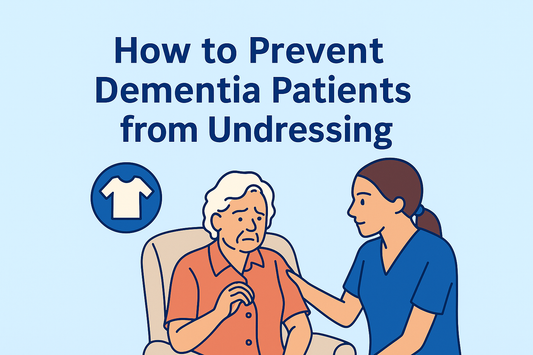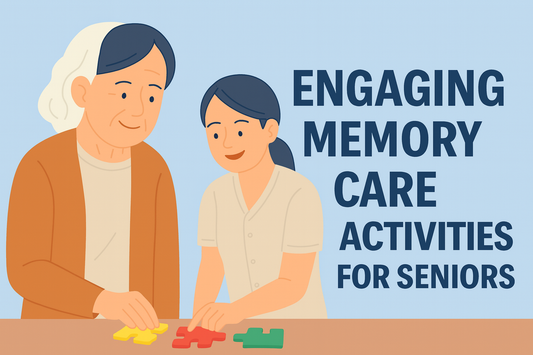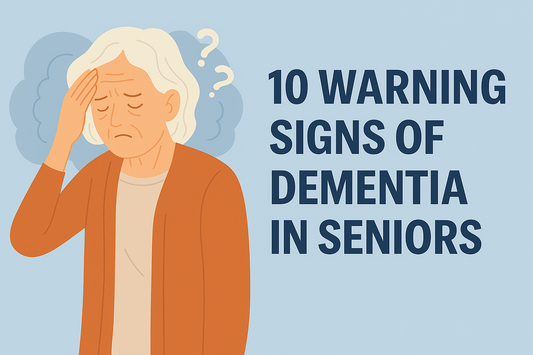Guide to Dementia: Symptoms, Diagnosis & Care Tips
TYPES OF DEMENTIA
What is dementia?
Dementia is an umbrella term for conditions that affect memory, thinking, and daily functioning. It is not a single disease, but a set of symptoms caused by different brain disorders such as Alzheimer’s disease, vascular dementia, Lewy body dementia, and frontotemporal dementia.
What is Alzheimer’s disease?
Alzheimer’s disease is the most common type of dementia, making up 60–80% of cases. It is a progressive brain disorder that causes memory loss, confusion, and difficulties with communication and reasoning. It starts with mild memory issues and advances to severe cognitive decline, eventually affecting independence and daily activities.
What’s the difference between Alzheimer’s and dementia?
Dementia is the general term for cognitive decline, while Alzheimer’s is a specific disease that causes dementia. Put simply: all Alzheimer’s is dementia, but not all dementia is Alzheimer’s.
What are the different types of dementia?
- Alzheimer’s disease – the most common type, linked to amyloid plaques and tau tangles in the brain.
- Vascular dementia – caused by reduced blood flow or strokes, leading to stepwise cognitive decline.
- Lewy body dementia – characterized by abnormal protein deposits, visual hallucinations, and Parkinson-like symptoms.
- Frontotemporal dementia – often begins at a younger age (45–65) and affects personality, behavior, and language.
- Mixed dementia – when more than one type of dementia occurs simultaneously, often Alzheimer’s with vascular dementia.

DIAGNOSIS SPECIFIC INFORMATION
Alzheimer's Disease (AD)For detailed information on the stages, caregiving tips, news articles and products specific to Alzheimer's, visit our
|
Lewy Body Dementia (LBD)For detailed information on the stages, caregiving tips, news articles and products specific to LBD, visit our LBD page. |
Frontal-temporal Dementia (FTD)For detailed information on the stages, caregiving tips, news articles and products specific to FTD, visit our FTD page. |
Vascular Dementia (VD)For detailed information on the stages, caregiving tips, news articles and products specific to Vascular Dementia, visit our Vascular Dementia page. |
Why are there different types of dementia?
Dementia is a group of symptoms, but the underlying causes vary. The differences are based on:
- The part of the brain affected (e.g., frontal lobes vs. temporal lobes)
- The cause of brain damage (e.g., stroke, protein buildup, trauma, or genetics)
- The way symptoms progress (gradual memory decline vs. sudden changes)
Classifying dementia into different types helps with diagnosis, treatment planning, and caregiving strategies.
THE STAGES OR PROGRESSION OF THE DISEASES
What are the stages of dementia?
Generally, dementia progresses through stages—cognitive impairment, early, middle, and late—each bringing increasing challenges in memory, behavior, communication, and daily functioning.
Understanding the stages helps families prepare for medical needs and caregiving support.
While progression can vary greatly from person to person, the type of dementia diagnosed also influences how and when different symptoms appear.
These are some of the changes that can be expected.

Stage 1: Cognitive Impairment
- Forgetfulness and misplaced items
- Slowed speech
- Gait impairment and poor coordination
- Depression, lack of personal care, collecting/hoarding
- Emotional changes such as agitation and mood swings
Stage 2: Early Stages
- Repeating themselves, difficulty with reading or arithmetic
- Substituting words, incomplete sentences
- Parkinsonism, clumsiness, frequent falls, poor coordination
- Wandering, delusions, paranoia, confusion
- Anxiety, agitation, mood swings
Stage 3: Middle Stages
- Unable to dress without assistance, loss of name recognition, reduced spatial awareness
- Incomprehensible speech
- Visual impairment (depth/contrast), severely reduced motor skills
- Wandering, anxiety, hallucinations, paranoia, sleep apnea
- Apathy and aggression
Stage 4: Late Stages
- No short-term memory, some long-term memory, no facial recognition
- Gibberish speech
- Incontinence, Parkinsonism, difficulty eating, swallowing, drinking
- Wandering behavior
- Aggression and mood swings
For more specific details on the stages of the different types of dementia, visit our: Stages of Dementia Page.
Stages of Alzheimer's Disease
Stages of Vascular Dementia
Stages of Lewy body Dementia
Stages of Fronto-Temporal Lobe Dementia
How are the stages different for each type of dementia?
- Alzheimer’s disease – Memory loss is the earliest and most prominent symptom. People may forget recent events first, then gradually lose long-term memory, recognition, and independence.
- Vascular dementia – Progression is often “step-like” rather than gradual. Symptoms may suddenly worsen after strokes or small vessel blockages, leading to changes in thinking, mood, or physical coordination.
- Lewy body dementia – Fluctuations are more common. A person may seem clear one day and confused the next. Visual hallucinations, sleep disturbances, and Parkinson-like movement issues appear earlier compared to Alzheimer’s.
- Frontotemporal dementia (FTD) – Instead of memory problems in the beginning, personality, judgment, and language are affected first. Memory often remains intact in the early stages but declines in later stages.
- Mixed dementia – Many people experience symptoms of more than one type (commonly Alzheimer’s plus vascular dementia), leading to a combination of memory decline, physical changes, and mood or behavior symptoms.
Compare Symptoms by Diagnosis & Stage

CAUSES OF THE DISEASES
What causes dementia?
Dementia can be caused by damage to brain cells from strokes, abnormal protein buildup, traumatic brain injury, or other medical conditions. Age, genetics, and cardiovascular health are also major risk factors.
What causes Alzheimer’s?
The exact cause of Alzheimer’s is not fully understood. Scientists believe it involves abnormal protein deposits in the brain—known as amyloid plaques and tau tangles—as well as genetic risk factors and aging.
THE ROLE OF GENETICS
Is dementia hereditary? Is Alzheimer’s hereditary?
Dementia itself is not directly hereditary, but genetics can play a role. Having a family history of Alzheimer’s or frontotemporal dementia may increase risk, but lifestyle factors such as diet, exercise, and cardiovascular health are equally important.
Rare genetic mutations can cause early-onset Alzheimer’s, but these are uncommon. Having a parent or sibling with Alzheimer’s slightly raises risk, but lifestyle choices play a big role in lowering it.
Is Alzheimer’s genetic?
Genetics can increase the risk of Alzheimer’s and other types of dementia, especially the presence of the APOE-e4 gene, but having this gene does not mean someone will definitely develop the disease. Most Alzheimer’s cases are the result of a combination of genetics, age, and lifestyle.
PREVENTION & CURES
How to prevent dementia?
There is no guaranteed way to prevent dementia, but research suggests several strategies can lower risk:
- Staying physically active
- Following a brain-healthy diet (such as the Mediterranean diet)
- Staying socially engaged
- Managing heart health (blood pressure, cholesterol, diabetes)
- Exercising the brain with puzzles, reading, or learning new skills
Can dementia be cured?
Currently, there is no cure for dementia. Treatments focus on managing symptoms, slowing progression in some cases, and improving quality of life. Researchers worldwide are working on new therapies, but for now, the best approach is a combination of medical care, lifestyle adjustments, and strong support for both the person living with dementia and their caregivers.
SUPPORT FOR CAREGIVERS
For more detailed information on specific support and resources for dementia caregivers, please follow this link.
Disclaimer
All text, charts, graphics, images, videos, downloads, and tools on this page (“Content”) are for general educational purposes only and are not medical advice. Dementia varies by person and diagnosis is complex; summaries and comparisons are simplified. We do not guarantee accuracy or completeness. Use at your own risk. To the fullest extent permitted by law, Dementia Aide LLC disclaims liability for any loss or damages arising from use of or reliance on the Content.
Copyright: © 2025 Dementia Aide LLC. All rights reserved.



